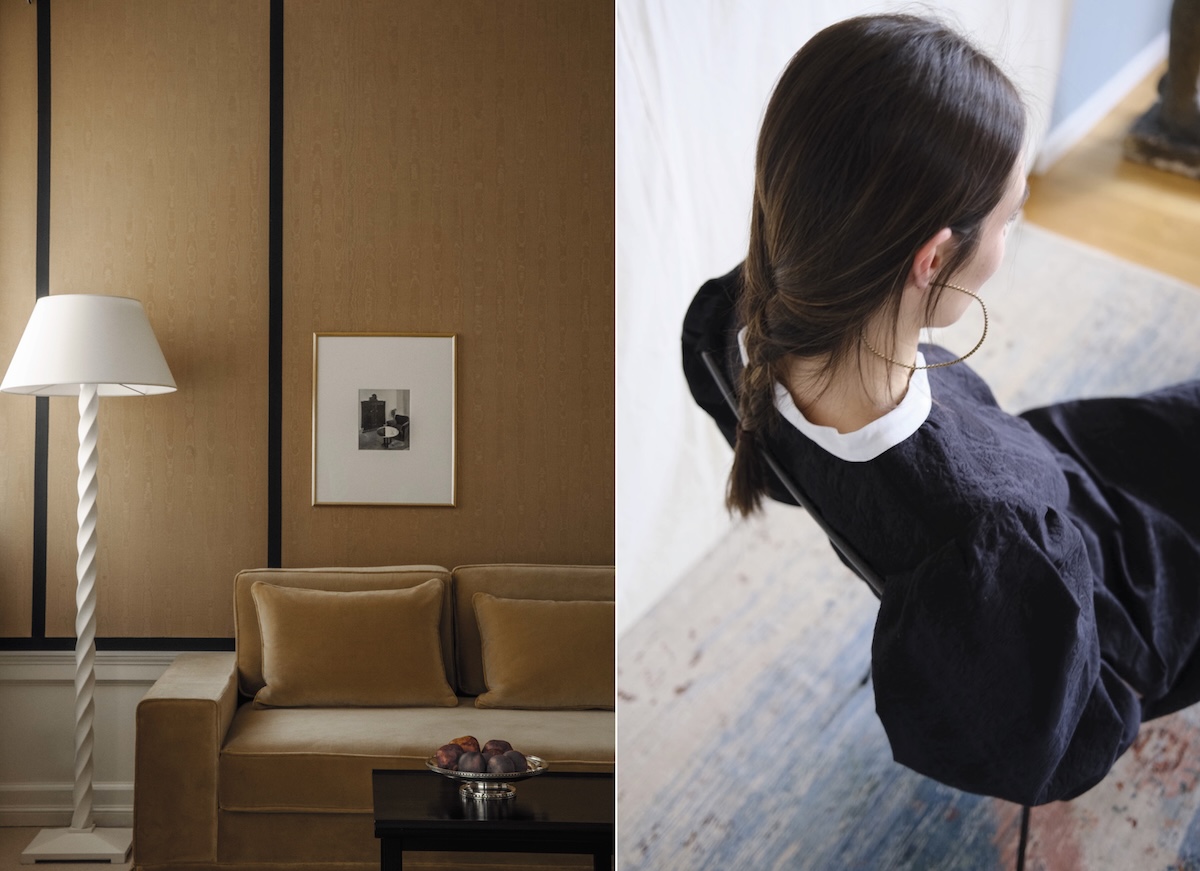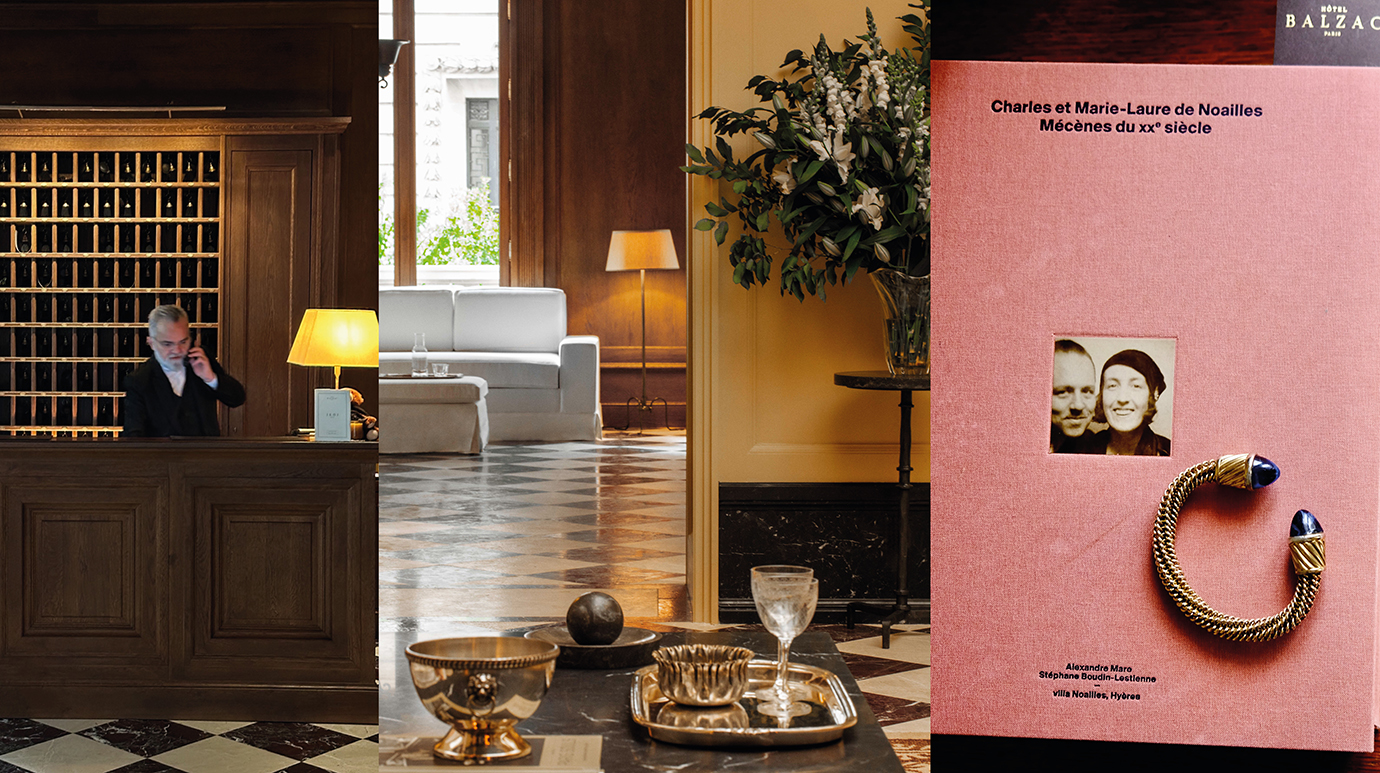It is this time of year — Art Basel — and you need a hotel where you can rest after a long day immersed in art at the Grand Palais. Hôtel Balzac is the ideal retreat, especially in autumn, when the air grows crisp and one seeks warmth, comfort, and a place in Paris that feels like home. The city is alive with collectors, curators, and creatives; galleries hum with quiet deals, cafés overflow with talk of light and form. And when the day draws to a close, there are few places that capture the serenity of Paris quite like this discreet address off the Champs-Élysées.
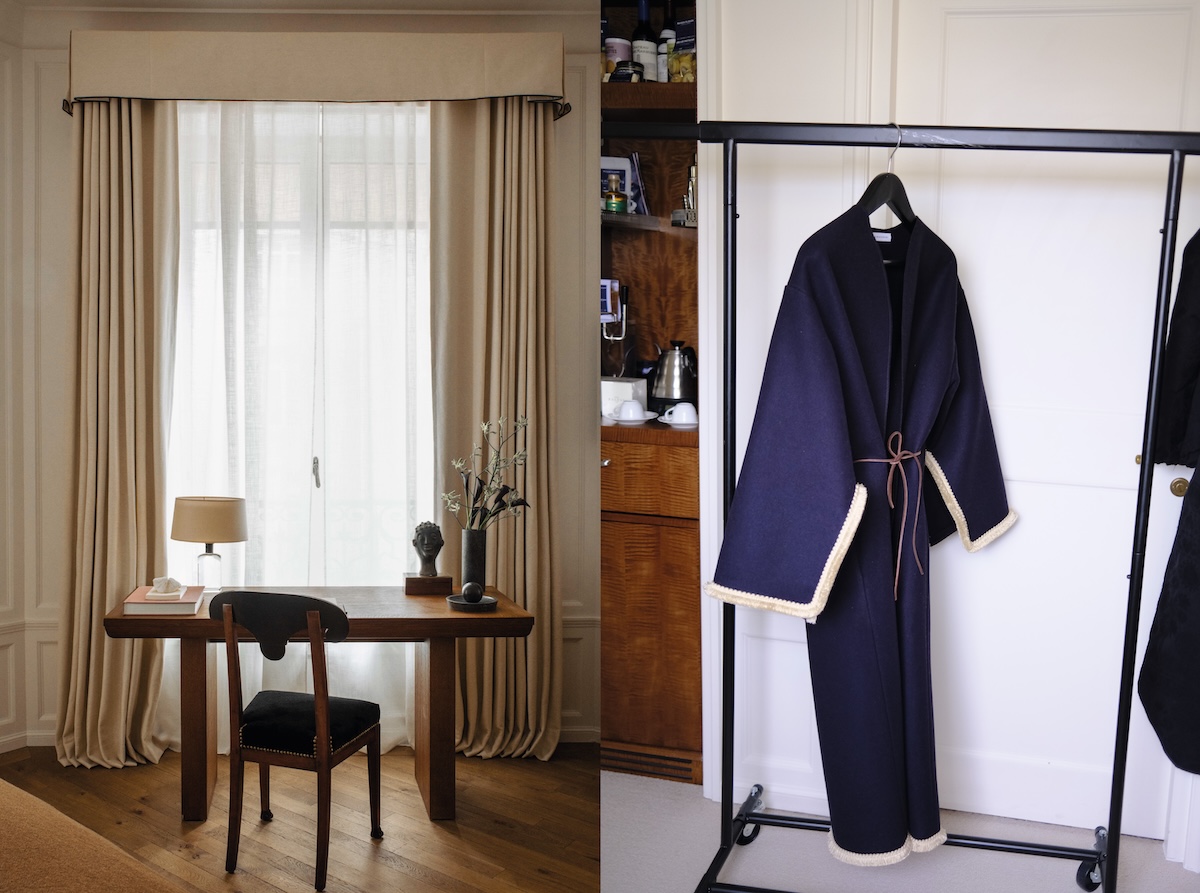
The avenue outside never sleeps — a grand stage of movement and light. But turn the corner into Rue Balzac, and the tempo softens. Hôtel Balzac stands there like a secret — a house with history and hush, where the pace of Paris slows. Recently restored by Charlotte de Tonnac and Hugo Sauzay, the duo behind the Paris-based design studio Festen, the hotel has been reimagined with elegant restraint and reverence. They’ve given it a new soul: one defined by quiet luxury, literary sensibility, and an instinctive understanding of comfort.
Honoré de Balzac once lived nearby, and though his original home has long disappeared, his spirit lingers here. You feel it in the stillness of the hallways, the muted wood panelling, the shifting light. Festen’s renovation isn’t nostalgic, but rather a dialogue with the past — allowing history to whisper through every detail. The design draws on the 1930s, a period balanced between classic refinement and modern clarity. There’s a hint of Orientalism too, a subtle nod to faraway travel — more suggestion than imitation.
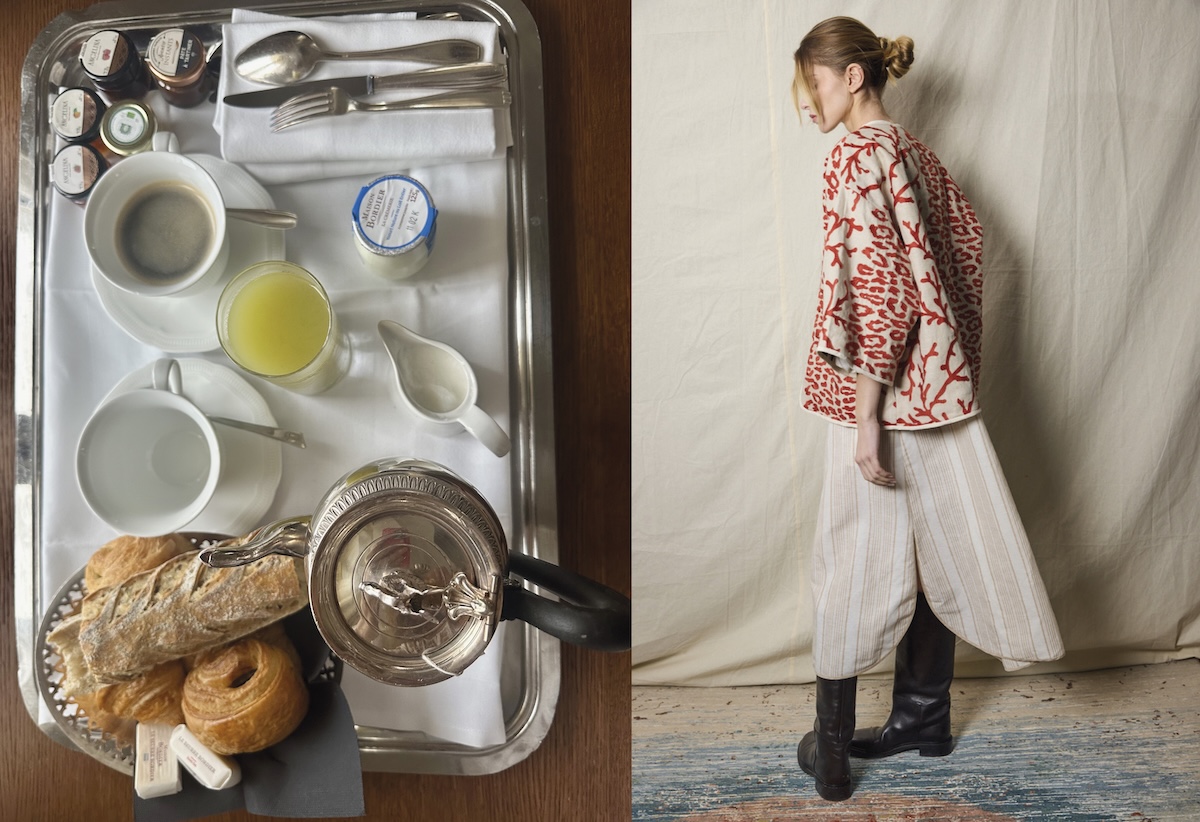
The reception immediately soothes. A black-and-white chequered floor nods to tradition, dark wood walls add gravitas, and pale sofas lend lightness. Nothing feels excessive; the elegance lies in proportion rather than display. It’s the kind of space that invites pause — calm without austerity, simple without being sparse.
The guest rooms follow this rhythm of understated comfort. Warm tones of caramel and wood create intimacy, softened by daylight that filters through quietly. Around 80 percent of the furnishings were custom-made, while the rest are restored vintage pieces that add texture and soul. Everything feels considered — chosen rather than placed. The result is a sense of ease, of lived-in sophistication that encourages you to stay a while, perhaps to read or write in peace.
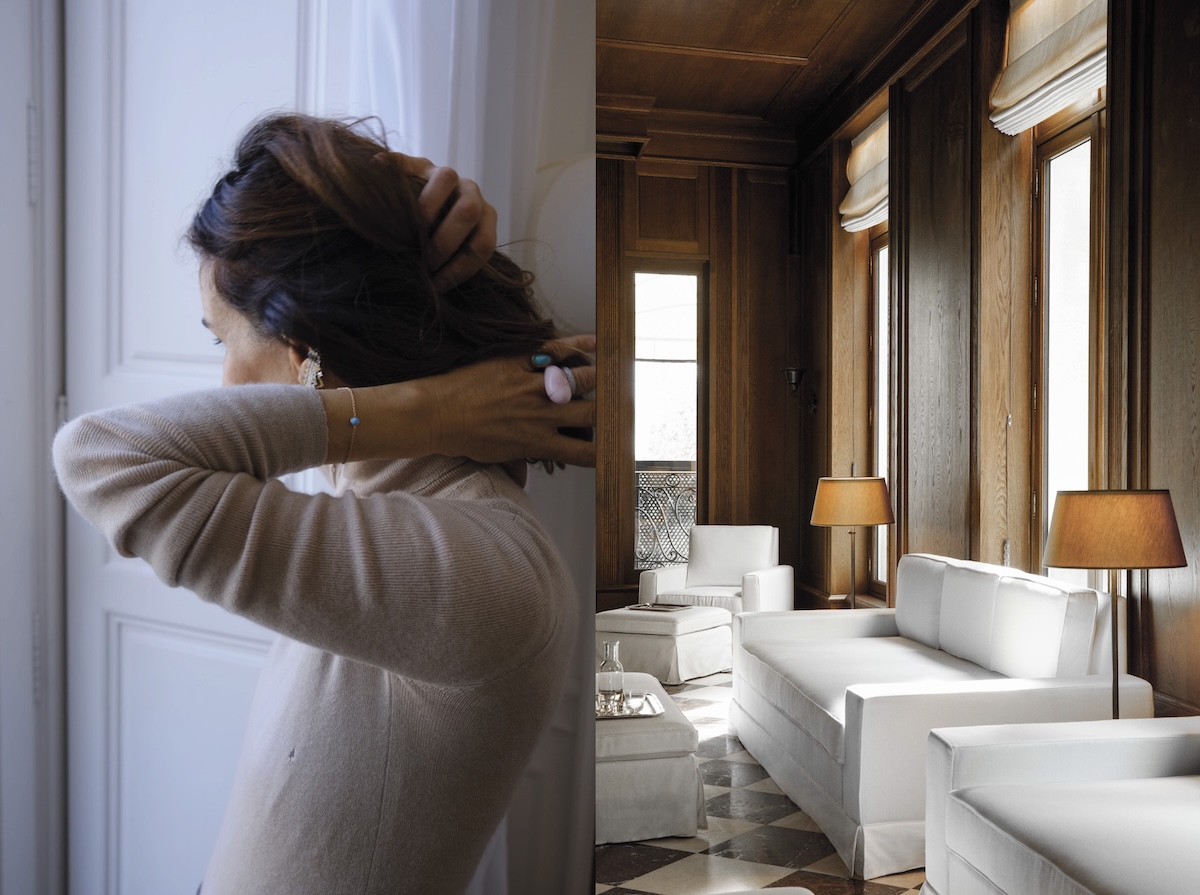
Downstairs, the glass-roofed salon offers a morning refuge. Guests linger over breakfast or an espresso as Paris hums just beyond the windows. The space feels like a winter garden — bright yet serene. A few steps lower, the bar shifts the mood. Darker and more intimate, it exudes the atmosphere of another era. There’s a faint Belle Époque melancholy, polished rather than aged. The cocktail list is a nod to Balzac’s novels — Illusion Perdue, a smoky mix of mezcal, vermouth, pepper, and bitters, tastes of reflection and intrigue.
The spa continues this narrative of calm. Inspired by Japan, it avoids imitation and instead channels the spirit of 19th-century Orientalist voyages. Dark woods, paper screens, and softened light evoke a sense of meditative stillness. Treatments such as Kobido, Shiatsu, and Take draw on ancient rituals, reinterpreted for the modern traveller. It feels more like a sanctuary than a spa — a place where time loosens its grip.
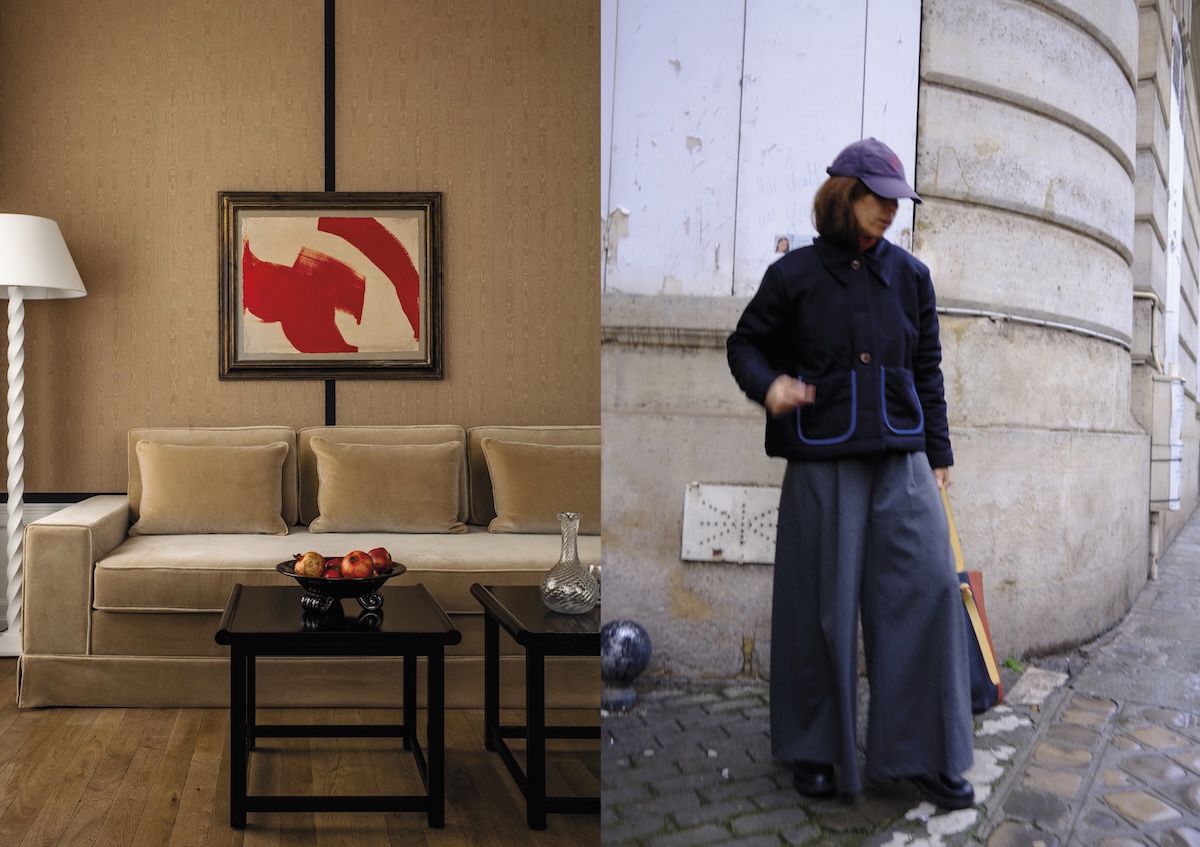
What defines Festen’s vision throughout is coherence — a dialogue between emotion and form. Hôtel Balzac isn’t a reconstruction or an exercise in nostalgia; it’s a contemporary continuation of Parisian tradition. Luxury here doesn’t announce itself. It exists in the details — the texture of the fabrics, the curve of a lamp, the scent of polished wood in the air.
In a city built on spectacle, this discretion feels rare. Hôtel Balzac doesn’t perform; it simply is. Every room feels deliberate yet effortless, as if the building has found its natural rhythm again. You come here not to be seen, but to breathe, to think, to rest.
As evening falls, the lights of the Champs-Élysées flicker to life beyond the window. From inside, the view feels cinematic — the city framed in soft amber light. Within these walls, the world slows. A glass of wine, a book, the quiet hum of the city beyond — it’s Paris at its most human, its most refined.
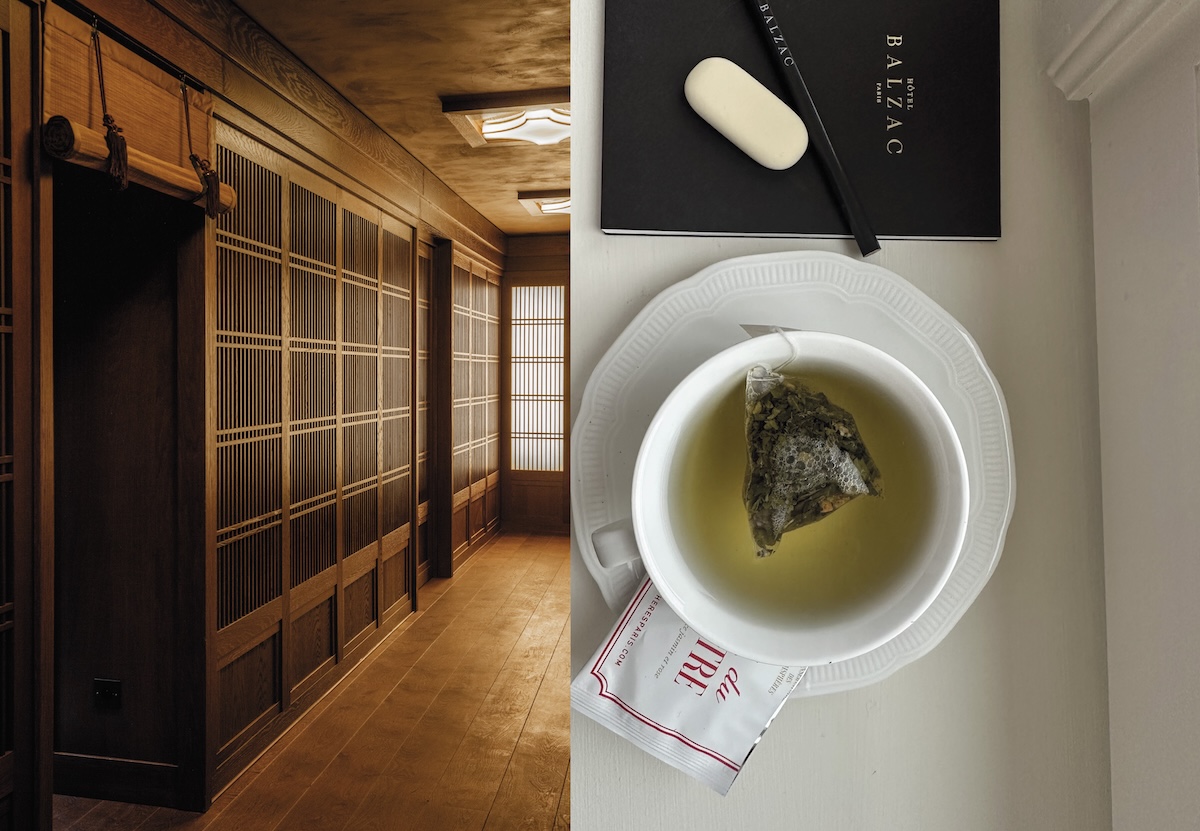
What Festen has created is more than a redesign; it’s an atmosphere. Hôtel Balzac feels like a story told in wood, glass, and shadow — one that unfolds slowly and stays with you long after you leave. In its quietness lies its luxury; in its simplicity, its beauty. A home for those who seek not grandeur, but grace.
